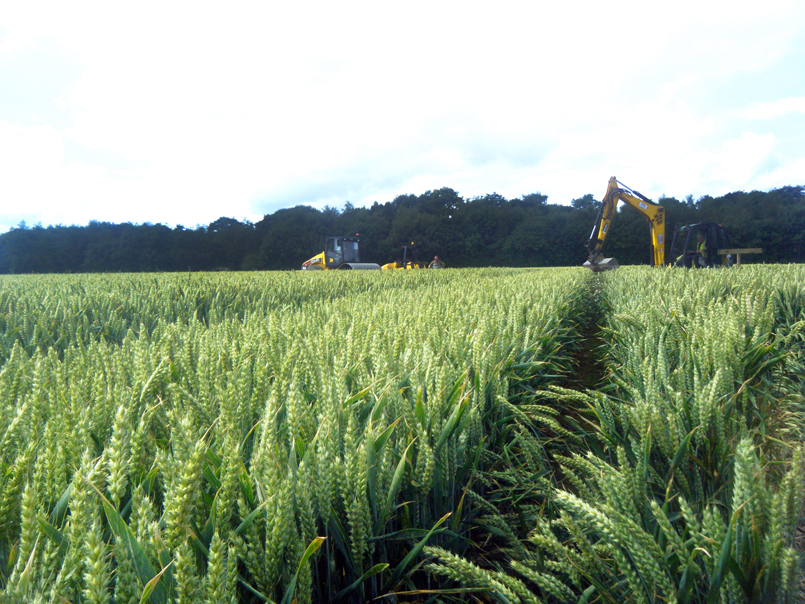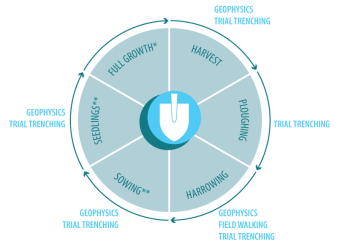
17 Jul The Agricultural Cycle and Archaeological Fieldwork
Headland Archaeology have produced an information leaflet that is being sent to our clients to remind them that we are now entering a phase in the agricultural cycle where trial trenching and geophysical survey is easier to undertake on arable land (see diagram below). The impact of agriculture on archaeological fieldwork is sometimes overlooked when planning applications are being compiled. Not considering this can have a negative effect on meeting planning deadlines in the same way that ecological issues can.
Construction projects need to be aware that archaeological evaluations will have an impact on crops that are growing on the site. While trial trenching could take place at any time of the year, post-harvest gaps are preferred because there tends to be less impacts on the land and crop compensation issues are minimised.
Geophysical survey work is more sensitive to the crop cycle and it is advisable to undertake this work as early as possible to minimise potential delays to the planning application. Archaeological geophysical survey is only possible where the crop is either newly in the ground, is only partially grown, or in the post-harvest period.




